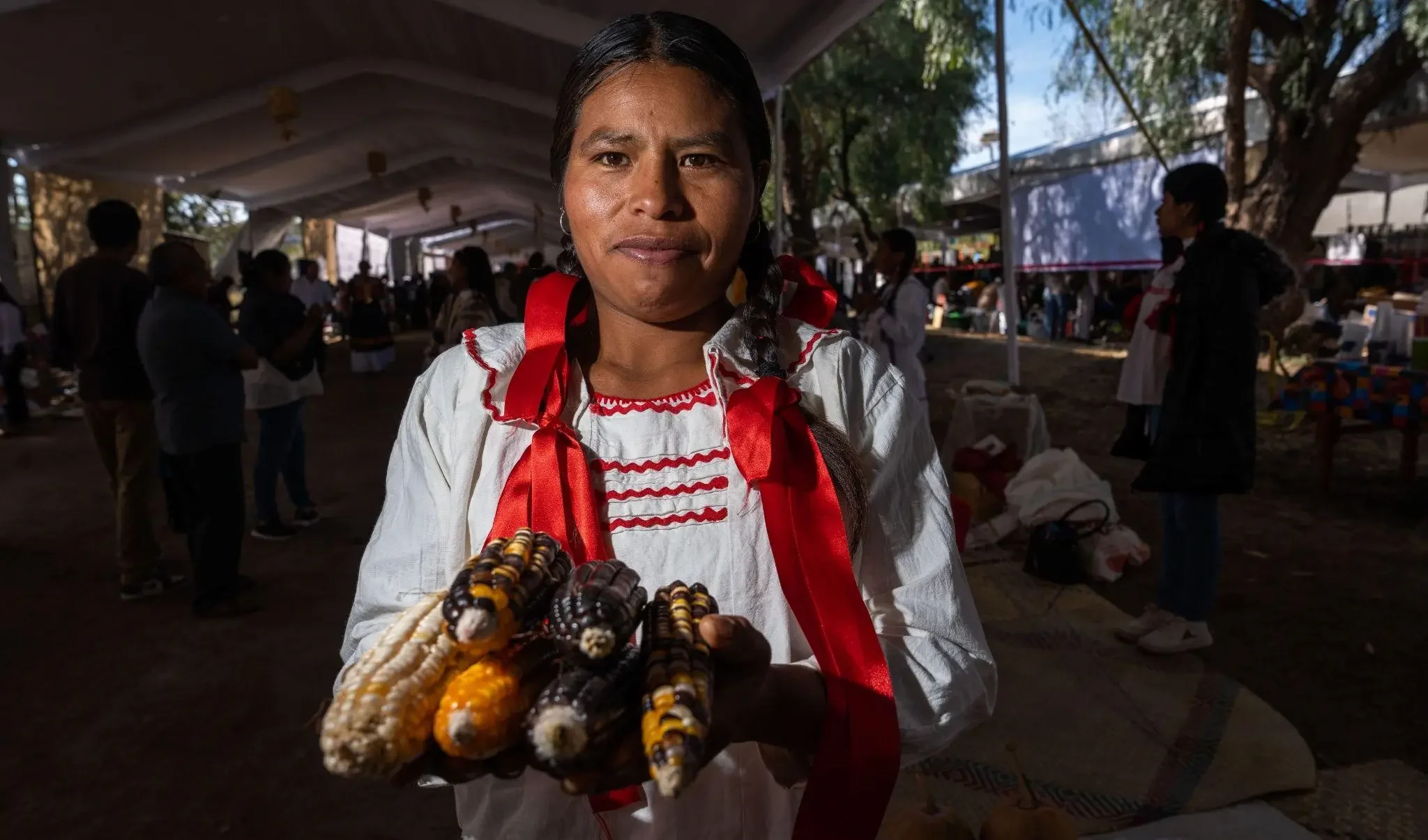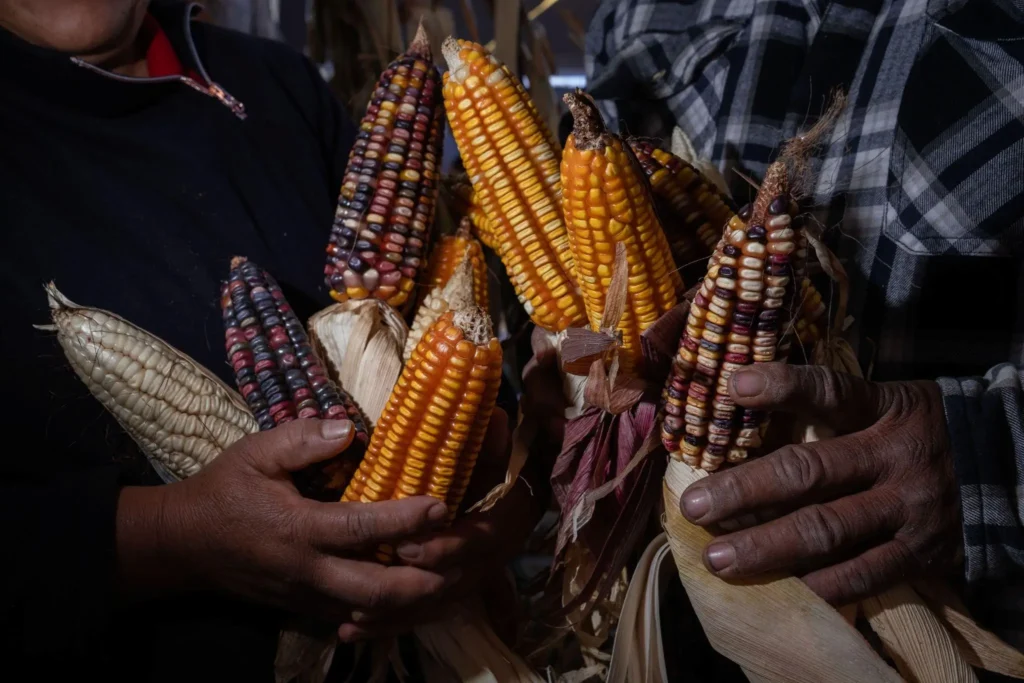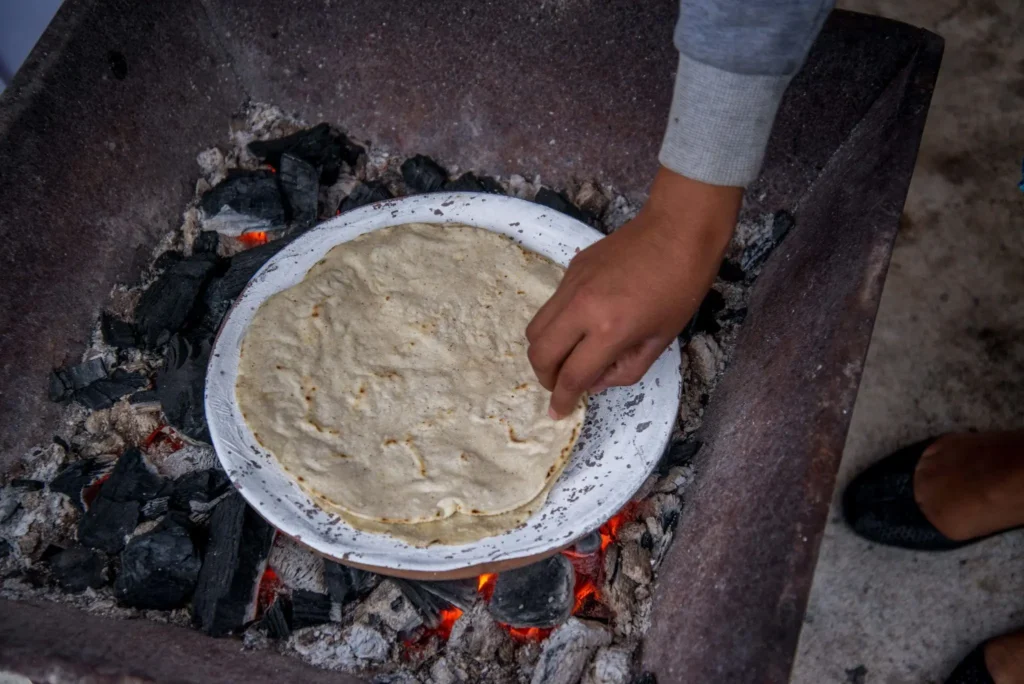
On September 29, Mexico celebrated National Corn Day, honoring one of the country’s most emblematic grains. The Ministry of Agriculture and Rural Development (SADER) highlighted corn’s role not only as a staple food but also as a symbol of identity, tradition, and biodiversity.

Since Mesoamerican times, corn has been the foundation of the diet and today it remains central in the daily lives of millions of Mexican families. Tacos, tamales, pozole, tlayudas, tlacoyos, and esquites are just a few of the dishes that showcase the rich culinary heritage tied to this grain.
Mexico, the center of origin of corn, safeguards 59 native varieties, whose preservation is essential to face challenges such as climate change, drought, and pests. Protecting them ensures food security for future generations and keeps ancestral agricultural knowledge alive.
On this commemorative day, the government recognized the efforts of farmers who drive the cultivation, transformation, trade, and consumption of corn. Producing this grain is seen as an act of food sovereignty, a pillar of the Fourth Transformation and of President Claudia Sheinbaum’s administration, guaranteeing the constitutional right to nutritious, sufficient, and high-quality food.
Boosting production among small and medium-scale farmers strengthens rural economies, sustains farming communities, and reduces forced migration. “Without corn, there is no country,” SADER recalled, underscoring that every tortilla made from native corn supports biodiversity and the communities who safeguard it.

Although Mexico is self-sufficient in white corn for human consumption, it still imports yellow corn for livestock feed and food processing industries. The government aims to reduce this dependency by raising domestic production to 25 million tons by 2030, up from the current 21.3 million tons.
As part of the Plan Mexico, an additional 3.6 million tons are expected from the southern and southeastern regions by 2030. For this year, national white corn production is forecast to surpass 20 million tons, ensuring sufficient supply for domestic consumption.
Beyond statistics, corn is inseparable from Mexican culture. Each dish made with it carries centuries of history and tradition. “Every tortilla, tamal, or esquite reminds us that our food sovereignty begins in the fields and is reflected on our tables,” the Secretariat noted.
With this commemoration, Mexico reaffirms that strengthening corn production is also about defending its identity, culture, and future.
Related: The Guadalupana Torch: Faith, hugs, and hope on their way to New York